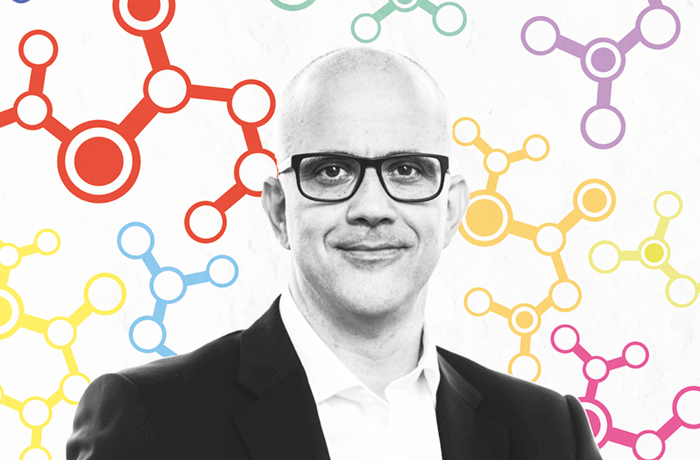I’ve always been driven by questions. Why? What if? How? And I’ve always been practical and willing to take action. Looking back, I must have been a very annoying child! Despite my current role, I am not a neuroscientist by background. I initially chose to become a surgeon. My main focus was on trauma and transplantation, but I was fascinated by the science behind what I was doing and, in particular, the connection between the brain and the gut. Surgery, of course, is not a place to ask too many questions! Working in neuroscience today fulfils my need for acting and science – asking questions about the brain and taking those questions to a practical end point – a new drug, or a new solution for humanity.

At the hospital, there were many significant moments. In trauma and transplantation, there can be a lot of drama. I have worked with patients facing a total loss situation – physically and mentally – but then twelve weeks later I’ve seen them in café or elsewhere with their life back on track. When you see that, you know you’ve done something remarkable.
In surgery, you see the impact of your actions first hand, but there is also a conglomerate of more invisible players that go into making a patient’s life better. In the pharma industry, I’m no longer in direct contact with patients, but a few years ago at a Novartis event I met an associate with multiple sclerosis. Over a five-year period, she experienced 14 attacks of blindness and loss of motor control when she was on an injectable therapy. She then started taking Novartis’ Gilenya (fingolimod) and had no further attacks over a three-year period. She got a job and was identified as a significant talent in the organization. Put simply, she got her life back – thanks to that drug. Even in less dramatic cases, if someone takes a medicine and feels better, instead of staying at home and feeling ill they may go on to have the most important day of their lives. Medicine creates opportunities and changes lives.
In surgery, you tend to feel alone; it’s just you, the patient and God (or whoever you believe in). The success or failure of that surgery is on your shoulders. Drug development is about working as part of a team. You are not expected to know the answers to everything but you need to ask the right questions at the right time and accumulate knowledge. It was challenging to adjust to a new mindset.
I remember seeing a presentation about the clinical trial results of Gilenya. It had a super complex mechanism of action and I was fascinated. Years later, I had the opportunity to apply for a position at Novartis, as well as a similar position at a different company in the US. Both offered similar challenges but Novartis’ company culture seemed more balanced and collaborative. My journey as a Novartis employee began in 2013.
I am incredibly proud of our pediatric MS work; Novartis was the first company to start and complete a controlled, randomized trial specifically for pediatric MS. The findings showed unprecedented efficacy in children and so the drug is now on the market (FDA approved) making a big difference to young patients.
A significant personal achievement has been recognizing that I cannot be an expert in everything! Whether it’s clinical trial statistics, basic science, or regulation, you need the right people with you, and you need to create the right atmosphere between them. I enjoy seeing the spark in the eyes of my people – my role is to encourage them to innovate outside out of the box – or at least be able to think in a different box.
The brutal truth is that everything in neuroscience drug development works against you: we do not have a full understanding of the central nervous system; it is difficult to deliver medicines to the brain without off-target effects; there are no good biomarkers; many of the degenerative diseases require long follow ups and thousands of patients who may have other co-morbidities. The costs of trials are also enormous…
To succeed, you need to balance your portfolio carefully and not put all of your eggs in one basket. But as well as de-risking your portfolio wherever possible, you also need to ensure that you do not miss the boat. Incremental improvement is easy, but will hardly take us anywhere. Developing, for example, an anti-depressant with 10 percent fewer adverse events is OK, but – as it will require full development cost – will this move the needle in meeting huge unmet need? And that’s time and money that could instead be invested into something more pioneering and life changing, such as cell or gene therapy. Drug developers should strive to make the standard of care nothing short of obsolete.
Importantly, although the instinct is to fight the fear of failure, I would recommend embracing it. Embracing failure means first learning from it, acknowledging the fear and not letting it deter you from pursuing the next science-based innovation to change people’s lives.




